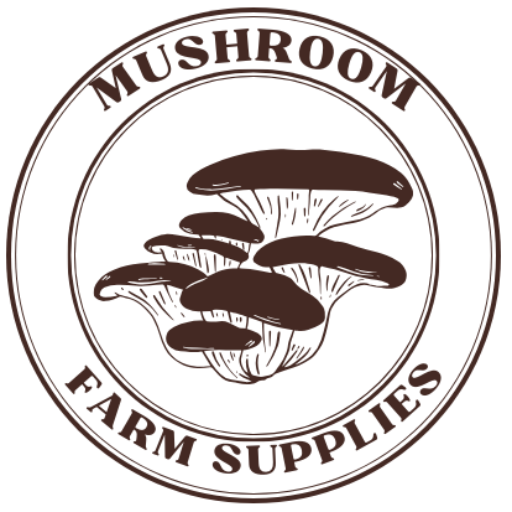Maitake (Grifola Frondosa)
Nestled in the serene forests of North America, Europe, and Asia, the Maitake mushroom (Grifola frondosa) emerges as a captivating and extraordinary specimen of the fungal kingdom. Often called the “Dancing Mushroom” for its unique, layered appearance, Maitake has been cherished for centuries not only for its culinary appeal but also for its potent medicinal properties. In this comprehensive exploration, we delve into the rich history, culinary significance, and the modern scientific understanding of the Maitake mushroom.
Historical Significance of Maitake
Maitake mushrooms have a profound historical presence, particularly in Japanese and Chinese cultures. Their name, “Maitake,” is derived from the Japanese words “mai” (dance) and “take” (mushroom), which symbolizes the jubilation and gratitude of those who found this elusive treasure. The Maitake mushroom’s reputation as a medicinal marvel dates back over 1,000 years.
In traditional Chinese and Japanese medicine, Maitake mushrooms were celebrated for their purported ability to boost vitality, promote longevity, and improve overall health. They were often given as gifts to the elderly to wish them a long and healthy life. Throughout history, Maitake mushrooms have been integrated into various recipes, tonics, and teas as natural remedies for a wide array of ailments.
Distinctive Appearance
The Maitake mushroom stands out in the forest, thanks to its layered, frond-like structure that bears a resemblance to overlapping fans or clusters of dark brown and grayish-white petals. These fan-shaped clusters can grow to impressive sizes, sometimes weighing several pounds. This unique appearance makes them easily recognizable by experienced foragers.
Maitake’s growth pattern is another point of intrigue. These mushrooms tend to be saprophytic, which means they feed on decaying wood, especially at the base of oak, elm, and beech trees. This unusual growth habit endows Maitake with a distinctive earthy flavor, enhancing their appeal as a culinary delicacy.
Culinary Excellence of Maitake
Maitake mushrooms, thanks to their exceptional taste and texture, have carved out a prominent place in gourmet kitchens around the world. The culinary applications of Maitake are as diverse as the chefs who prepare them. Their flavor is often described as earthy, nutty, and savory, making them a valuable addition to a range of dishes.
In Japanese cuisine, Maitake mushrooms are traditionally used in soups, stir-fries, and tempura, adding a rich and robust umami flavor. In Western cooking, they are often sautéed, roasted, or grilled, where their crisp, caramelized edges and meaty texture make them an ideal substitute for meat in vegetarian and vegan dishes. Maitake can also be used to create a hearty mushroom broth or a rich base for sauces and gravies.
Medicinal Marvel
Beyond their culinary prowess, Maitake mushrooms have garnered attention and respect in the realm of modern medicine and scientific research. The growing body of evidence suggests that the Maitake mushroom offers numerous health benefits, making it a sought-after component of alternative and complementary medicine.
- Immune System Support: Maitake mushrooms are rich in beta-glucans, complex carbohydrates known for their immune-boosting properties. They stimulate the activity of immune cells, enhancing the body’s ability to ward off infections and diseases.
- Anticancer Potential: Preliminary studies indicate that Maitake extracts may possess anti-tumor properties. They have been observed to inhibit the growth of cancer cells and enhance the efficacy of chemotherapy.
- Blood Sugar Regulation: Research has suggested that Maitake may help regulate blood sugar levels, making it potentially beneficial for individuals with diabetes or those at risk of developing the condition.
- Cardiovascular Health: The mushrooms’ beta-glucans also show promise in lowering cholesterol levels and reducing the risk of cardiovascular diseases.
- Antioxidant Activity: Maitake mushrooms are rich in antioxidants that combat oxidative stress, protecting cells and tissues from damage.
- Anti-Inflammatory Properties: These mushrooms have been investigated for their potential to reduce inflammation, which is linked to many chronic diseases.
- Weight Management: Maitake may help with weight management by influencing fat metabolism and reducing fat storage.
- Liver Health: Some research suggests that Maitake may support liver health and protect against liver damage.
It’s essential to note that while Maitake mushrooms offer significant potential health benefits, they are not a substitute for medical treatment, and individuals with specific health concerns should seek advice from healthcare professionals.
Cultivation and Conservation
As the demand for Maitake mushrooms continues to grow, efforts to cultivate them have increased. Controlled cultivation in indoor or outdoor environments is seen as a sustainable way to meet the demand while protecting wild populations and their habitats. Cultivated Maitake mushrooms are grown on a substrate of sawdust, grain, or other plant materials, replicating their natural habitat conditions.
In terms of conservation, it is vital to ensure the responsible harvesting of wild Maitake populations. Overharvesting and habitat destruction can jeopardize the existence of these valuable fungi. Ethical foraging practices and sustainable management of Maitake habitats are essential to preserve these ecosystems and maintain the delicate balance of nature.
Maitake Mushroom
The Maitake mushroom, with its rich history, culinary versatility, and compelling medicinal potential, stands as a testament to the extraordinary diversity and value of fungi in our world. From ancient celebrations of longevity to modern scientific research, Maitake mushrooms continue to captivate our imagination and offer promise in the realms of health and well-being. As our understanding of these “Dancing Mushrooms” deepens, they remain a symbol of the profound connections between nature, culture, and human health. Whether on our plates or in our medicine cabinets, the Maitake mushroom is a true marvel of the natural world, inviting us to explore and appreciate its many wonders.
